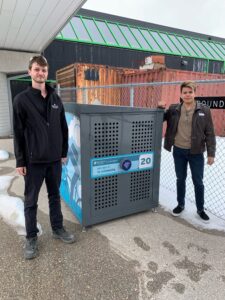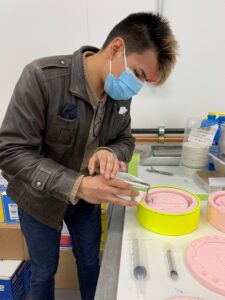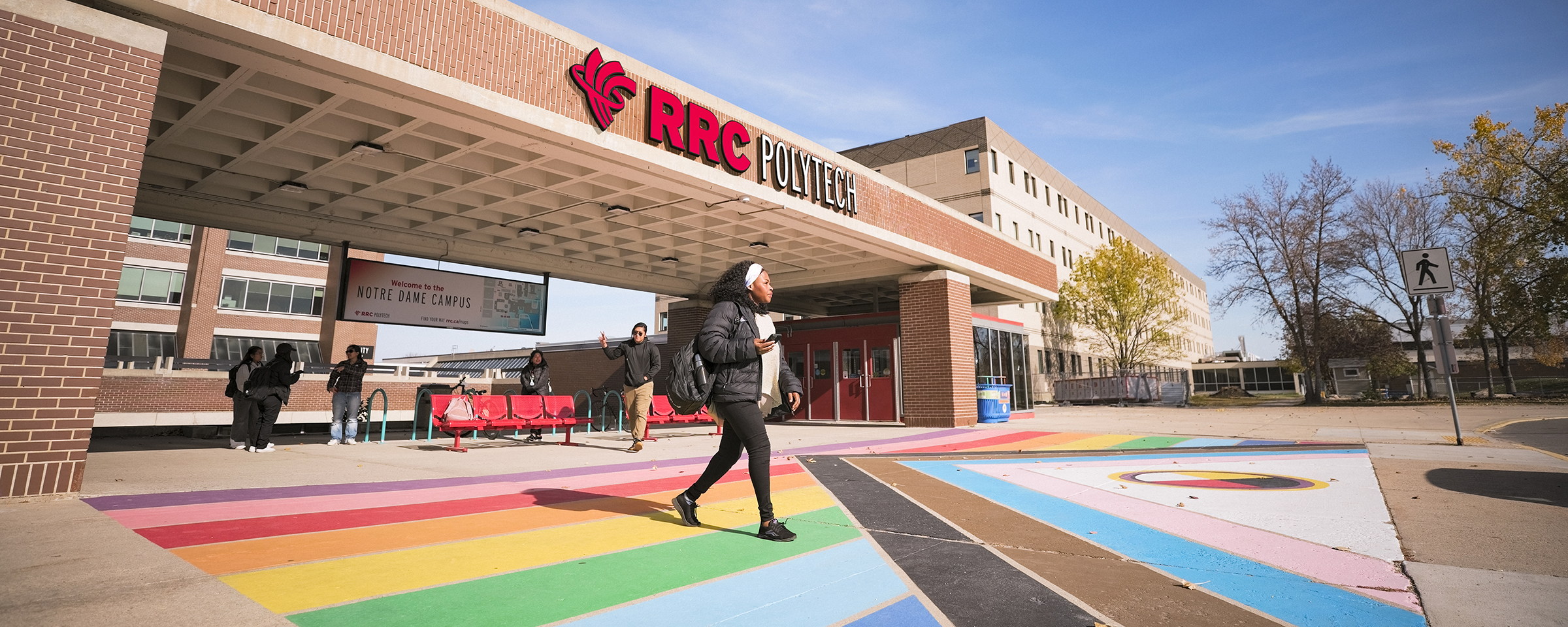Mockups and lockups: Manufacturing student creates new covers for on-campus bike lockers
 You can’t make something from nothing. Unless you’re in manufacturing — then you can come pretty close.
You can’t make something from nothing. Unless you’re in manufacturing — then you can come pretty close.
Just ask Ryan Ross, a CNC Machining and Advanced Technology student who created durable weatherproof covers for RRC Polytech’s bike lockers.
“In the beginning I had nothing to work with,” says Ross (shown, at right). “It all started with hours of CAD (computer aided design) to get an initial shape and feel for the part. Once I measured (the lockers), I realized my design fit quite comfortably and my second iteration was adapted to use the measurements.”
After he 3D-printed his designs and confirmed they were functional, it was time to research the right material for the job. Another challenge: using something he had not worked with before.
“For the past two years I’ve learned to be a machinist — to work with metals. To be in a project with virtually no machining and work with a different material entirely … it was definitely a bit of a culture shock,” says Ross. “It taught me a lot about the plastics manufacturing industry — it really shows you that even the simplest plastic piece has a lot of meticulous steps to perfecting the process.”
Ross chose to make the parts out of two pieces of polyurethane resin, as it’s tough, resistant to moisture and chemicals, and can be mixed with UV-resistant additives to boost life expectancy against the sun.
“I wanted to make something that was elegant and simple, but portrayed the College’s pride and grace through a single act of production,” says Ross. “It was hard to conceptualize in the beginning, but I got input from many instructors and fellow classmates and was able to finalize the design.”
 Work-integrated learning (WIL) provides RRC Polytech students with the opportunity to take a real world problem and use their training to create a solution. The College had installed new bike lockers only a few years ago, but already some of the locks were damaged from weather and wear and needed additional protection. Daniel Wiens, an Electrical, Mechanical and Manufacturing instructor, remembers presenting the idea to Ross’ class.
Work-integrated learning (WIL) provides RRC Polytech students with the opportunity to take a real world problem and use their training to create a solution. The College had installed new bike lockers only a few years ago, but already some of the locks were damaged from weather and wear and needed additional protection. Daniel Wiens, an Electrical, Mechanical and Manufacturing instructor, remembers presenting the idea to Ross’ class.
“I didn’t even finish the presentation and he [Ross] had a sketch,” says Wiens (shown, at left). “I thought, ‘Yep, you’re going to be the one running with this.’”
Wiens describes Ross as eager, saying he put a lot of extra time into the project. He believes the utility of the final product matters to students.
“It’s functional, it’s practical, you know it’s going to be used — it encourages the student to put in a lot more effort,” says Wiens. “They know they made it. It’s a sense of accomplishment you usually only get from industry.”
For Ross, the sense of accomplishment and working within industry came early. Hi-Tech Seals, a local parts manufacturer and distributor, donated molding and plastics materials for the project.
“It was a very proud moment for me,” says Ross. “This project really gave me respect for the people in industry that make these things happen — I would like to explore the plastics manufacturing industry. What this newly obtained knowledge does is inspire me to learn more.”
